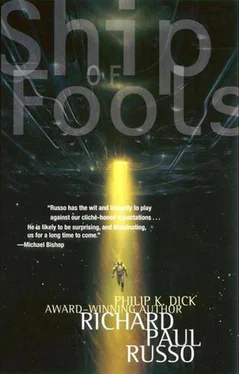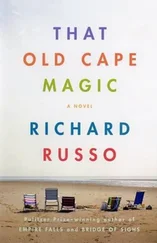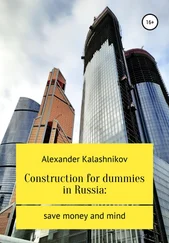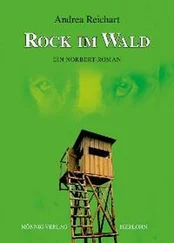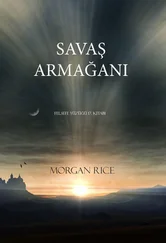We didn’t talk much on our way in—a few words now and again, and only when necessary: to direct the opening of a hatch or door, to check that another hatch was closed—tasks of that nature. But it was not a quiet from fear or tension; it came, I believe, from calm assurance and a sense of unity.
Three hours into the ship we reached the area of gravity, and the drifting dance changed, steadied to a silent march through more regular shifting of the shadows. When we entered the circular chamber, we unloaded the equipment and supplies we’d brought with us—extra air, replacement food and water—then formed three teams. After we worked together to get the second door open, one team took that corridor, and the rest of us cautiously entered the room in which we’d found the old woman. Pär, Father Veronica, and I stayed in the room and more thoroughly searched through the old woman’s belongings, while the third team went through the open doorway at the far end and explored the area beyond.
We found little in the old woman’s room. The open cubicle we’d seen the first time, and which we hadn’t been able to examine, housed a functioning toilet; above it was a basin with running water—presumably both hot and cold, since there were two different buttons, each of which produced a flow of water when pressed.
In the right corner was a covered pad which must have served as a sleeping mat, two or three torn and filthy blankets, and several pieces of clothing as worn and dirty as the blankets—a pair of trousers, something that might have been a skirt, a couple of shirts. No underclothing.
There were four metal bowls crusted with bits of dried matter. Food, probably. Scraps of colored paper, a pair of rubber sandals. An oxidized metal bracelet inside a wooden box.
Father Veronica discovered a wall panel above the sleeping mat that opened to reveal a small cubbyhole filled with a jumble of objects. She carefully removed them one at a time, handing each to me after she had inspected it, while I in turn handed each to Pär.
The first was a large, deep blue stone about the size of my thumb. The blue had depth, and embedded in it were opalescent swirls that seemed to undulate within the dark color around them. I held the stone a long time, mesmerized, before I finally broke out of my trance and handed it to Pär.
Next came a pair of earrings with pale yellow beads and tiny silver butterflies. After that was a small, red-bound book not much larger than my hand; inside, all of the pages were blank except for a single ink drawing of an eye on the final page. Then there was a pink, egg-shaped candle that had never been used. Also, a thin flexible tube with a cap, but nothing to identify it; when I uncapped it and gently squeezed the tube, a dark blue substance oozed from it.
The last thing Father Veronica removed from the cubbyhole was a cracked and curling photograph of a middle-aged woman with her arm around the shoulders of a much younger woman. The photograph appeared to have been taken at sea; an expanse of blue-green water stretched behind them, meeting a paler blue sky fluffed with bright white clouds. I couldn’t tell if they were standing on the deck of a boat, on a pier, or on a spit of land extending into the water from shore.
“She looks like the old woman,” Pär said. All three of us were huddled around the picture, staring at it.
“Which one?” Father Veronica asked.
She was right. They both looked like younger versions of the old woman. It could have been a photograph of the old woman and her daughter, or the old woman and her mother. Or neither.
“We can show it to her,” Father Veronica said. “Maybe it will help.” She carefully placed the photograph into one of her suit pockets.
We returned the rest of the objects to the cubbyhole and moved on.
THEresults of our initial explorations were interesting, but unremarkable. The team exploring behind the stuck door discovered only an empty room shaped much like the old woman’s, and from there a passage that terminated at a blank wall. The other team had more luck, but not much more excitement. They found a functioning wall unit in the corridor beyond the old woman’s room that produced water and what appeared to be food. That corridor, in turn, led to a cluster of empty rooms lined with benches or sleeping platforms; each room in the cluster had another door, but the team had been unable to open any of them.
When we’d been inside the ship for fifteen hours, I ordered all activities to cease. We needed rest, and a break from the disappointment of not finding any other survivors.
ITfelt like the dead of night. We were in the circular room, and most of us, at my insistence, were trying to sleep—I looked around at suited forms propped against the walls, lying face-up on the floor; Youngman was wedged in a doorway. Sleeping in the suits was difficult until exhaustion took over.
I sat on the top step, facing the center of the lower level. My eyes were barely open, and I thought I might fall asleep in that position. Night. Arbitrary, but even the diffuse blue light seemed dimmer than usual, although I am sure it was my imagination.
Movement brought me fully awake, but it was only Casterman getting up from his knees in the air lock, where he had been praying. He stepped over Youngman’s sleeping form in the doorway and came back into the room. For a few moments he stood motionless; then he opened one of his suit pockets, dug around in it, and pulled something out. In the dim light I couldn’t see what it was, and I wasn’t much interested.
Casterman resumed walking, headed toward the center of the room. He descended the steps, took a few more paces, then stopped. He was not quite in the center of the lower level.
“Bartolomeo,” he said.
I looked at him, waiting, but he didn’t say anything more.
“Try to get some sleep,” I eventually said.
“I’ve been trying to pray. But I’m not making a connection. The link is broken.”
I didn’t like the sound of his voice, or what he was saying. It sounded a little bit crazy. I pushed myself up to my feet.
“Eric…”
“You’ve never called me that,” he said. “Always Casterman.” He shook his head. “It doesn’t matter. None of it does. I’ve made a different connection.”
He took two more steps and stopped, standing directly in the center of the room. He looked at me, and I thought I could see him smile. He knelt and felt around on the floor with his free hand. It seemed he found what he was searching for, and pressed his fingers into the floor.
Suddenly a bright silver light came on in the ceiling directly above him, bathing him in a radiant glow that cut through the dim blue fluorescence and made it all seem even that much darker around him. Now I could see what he held in his hand, could see light reflecting from the shiny metal blade of a large, long knife. He brought himself erect, staring up at the light.
I thought he would try to use the knife on me, and I was afraid; I took a step toward him, anyway. But before I could take another, Casterman popped the seal of his helmet with his left hand, pried the helmet off, and tossed it aside. He was definitely smiling, a soft and gentle smile. Then he brought the knife up, tipped his head back, and drew the knife swiftly and deeply across his throat, crying out in surprise and pain.
I rushed forward as he fell, blood already spurting from his neck, splattering his face and suit. He hit the floor hard and heavy, and I sprawled on my hands and knees beside him, slipping in the blood.
“Help me!” I shouted, although I have no idea what I thought anyone could do.
Blood was everywhere. His body convulsed. I could see the arterial pulsing, a tiny fountain shining in the light from above. I covered the fountain with my gloved fingers, knowing it was hopeless.
Читать дальше
